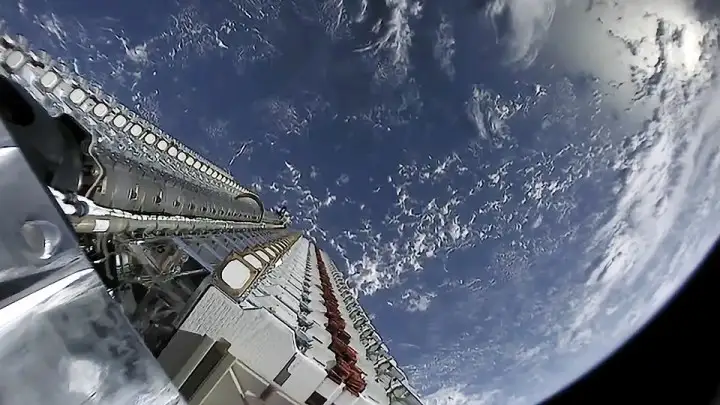Starlink Achieves Record-Breaking Customer Count! See the Numbers!
 Starlink satellites being deployed by SpaceX
Starlink satellites being deployed by SpaceX
SpaceX has announced that its Starlink internet service, which delivers connectivity from space, has become a global phenomenon with 4 million subscribers.
“Starlink is now providing high-speed internet to over 4 million users in more than 100 countries, territorial regions, and additional markets,” the company disclosed via a post on X (previously known as Twitter) last Thursday.
The Starlink project, spearheaded by Elon Musk, is experiencing a rapid expansion phase, having attracted 1 million new users just within the past four months. Initial Starlink customers started using the service in October 2020, reaching a notable milestone of 1 million users by the end of 2022.
Starlink's journey began in earnest when SpaceX propelled the first set of 60 satellites into low-Earth orbit in 2019. Since then, the satellite network has swelled to an estimated 6,300 active satellites, as SpaceX aims to enhance service speed, reliability, and broaden its coverage area.
Aside from catering to residential customers, Starlink is increasingly tapped by businesses, including cruise lines and airlines. Notably, Air France recently revealed plans to incorporate Starlink into their aircraft beginning next summer. This implementation will offer ultra-fast internet for passengers, requiring them to register through the airline’s Flying Blue loyalty program to gain access.
“Passengers will be able to maintain contact with loved ones, stay informed on global updates, engage in online gaming, and stream entertainment,” Air France stated in its press release. “Accessibility will span smartphones, tablets, and laptops, enabling multiple device connections per passenger.”
The ambitious Starlink program has encountered hurdles, mainly from astronomers. They've pointed out that satellite reflections interfere with deep-space observations. Compounding the issue is the electromagnetic radiation released by Starlink’s advanced satellites, disrupting radio telescope operations and impairing astronomical research, as reported by the BBC.
While Starlink faces technical and scientific challenges, its ongoing expansion showcases the potential for satellite internet to reshape global connectivity. As the network grows, SpaceX might integrate the upcoming Starship rocket into their satellite deployment strategy, further amplifying Starlink's capability to support major internet demands worldwide. With an eye on future developments, it will be fascinating to see how SpaceX navigates the balance between technological advancement and the preservation of scientific endeavors.

